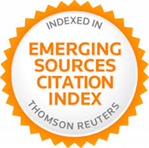Call for papers: Border Spaces and Oscillations between Reality and Fiction in the Hispanic Sphere - Deadline September 15th, 2024
The phenomenon of the blurred relationship between reality and fiction is not new and refers to discussions that, in the West, can be traced back to sophism or to the Platonic criticism of writing. However, twenty years after the beginning of the century marked by a utopian vision of access to and use of information and communication technologies, in which modern societies seemed to embrace the utopian opportunity of an informed and connected citizenship, it is worth asking whether we are facing a real paradigm shift in this relationship.
In the current visual and media culture, we find a proliferation of works where the hybridization between fiction and non-fiction is exacerbated to become problematic and interesting from a theoretical and critical point of view. While critical theories of mass media, new media, and digital cultures have paid attention to the border spaces between reality and the fictional construction of reality, the emergence of new technologies, especially those associated with Artificial Intelligence, has only complicated these relationships. Furthermore, the increasing difficulty of reading fiction as such is evident in those works where events and characters are accepted as real or historical. It is also appreciable in the new modes of censorship in fiction, a controversial phenomenon that requires new efforts in media literacy.
The Fic-Trans Project proposes, from a theoretical-cultural perspective, the analysis of the theoretical and discursive foundations underlying these phenomena or the recent concept of post-truth, as well as the definition or mapping of the rhetorical and discursive strategies that operate at the limits of fictional and factual genres. In this research, the role played by the hybridization of media and genres is also central, based on the observation of cultural dynamics, discourses, and genres in which intermediality and transmediality are observed.
This issue proposes, from a necessary global perspective, but with a focus on the Hispanic sphere, the critical study of the erasure and loss of boundaries between fiction and non-fiction in contemporary culture, and its interrelation with concepts of intermediality, transmediality, and generic and media hybridization, as well as with concepts such as post-truth.
Thematic areas:
- The impact of Artificial Intelligence on literary and audiovisual creation and representation regarding the new limits of reality.
- Sound worlds and podcasts, on the limits between fiction and non-fiction.
- Generative creation in electronic literature: recent developments.
- Docufictions and other oscillations of reality/fiction in video games.
Deadline for article submission: September 15th, 2024







